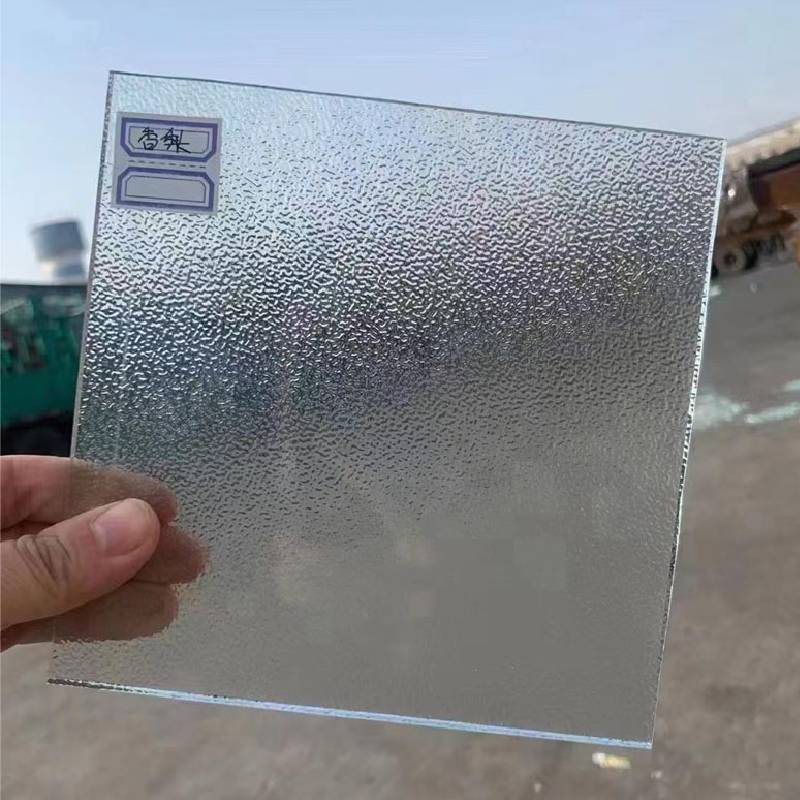Float glass, a type of flat glass that is manufactured by a process known as the float glass process, has become an essential material in various industries due to its versatility and unique properties. The production of float glass involves pouring molten glass onto a bed of molten tin, resulting in a smooth, flat surface that is ideal for a wide range of applications.
One of the most prominent uses of float glass is in the construction industry. It serves as a fundamental component in windows, doors, and facades, providing natural light while ensuring energy efficiency. Modern architectural designs often incorporate large glass panels to create aesthetically pleasing environments and enhance the overall appeal of buildings. Float glass is celebrated for its clarity, strength, and ability to be tinted or coated to improve insulation and reduce glare.
.
The use of float glass extends into the appliance sector as well. Many household appliances such as ovens, stovetops, and refrigerators incorporate float glass for both functional and aesthetic purposes. The smooth surface of float glass is easy to clean and maintain, which is an essential feature for kitchen and home appliances. Additionally, it can be designed to withstand high temperatures, making it ideal for cooking surfaces.
float glass uses
Float glass also finds applications in furniture and interior design. Glass tables, shelves, and partitions allow for efficient use of space while contributing to a modern and open aesthetic. The transparency of float glass creates an illusion of spaciousness, making it a popular choice in small apartments and offices. Moreover, it can be customized through various treatments such as frosted or etched finishes to suit different design preferences.
Lastly, the electronics industry utilizes float glass in the production of screens and displays. The flat, smooth surface of float glass is ideal for television screens, computer monitors, and smartphones, providing high clarity and durability that enhances user experiences.
In conclusion, float glass is a multidimensional material that plays a critical role in construction, automotive, appliance manufacturing, furniture design, and electronics. Its unique characteristics of durability, clarity, and versatility make it an indispensable component in many facets of modern life, continually driving innovation in its applications. Whether it’s enhancing the beauty of a building or ensuring safety in vehicles, float glass remains a foundational element of contemporary technology and design.
 Afrikaans
Afrikaans  Albanian
Albanian  Amharic
Amharic  Arabic
Arabic  Armenian
Armenian  Azerbaijani
Azerbaijani  Basque
Basque  Belarusian
Belarusian  Bengali
Bengali  Bosnian
Bosnian  Bulgarian
Bulgarian  Catalan
Catalan  Cebuano
Cebuano  Corsican
Corsican  Croatian
Croatian  Czech
Czech  Danish
Danish  Dutch
Dutch  English
English  Esperanto
Esperanto  Estonian
Estonian  Finnish
Finnish  French
French  Frisian
Frisian  Galician
Galician  Georgian
Georgian  German
German  Greek
Greek  Gujarati
Gujarati  Haitian Creole
Haitian Creole  hausa
hausa  hawaiian
hawaiian  Hebrew
Hebrew  Hindi
Hindi  Miao
Miao  Hungarian
Hungarian  Icelandic
Icelandic  igbo
igbo  Indonesian
Indonesian  irish
irish  Italian
Italian  Japanese
Japanese  Javanese
Javanese  Kannada
Kannada  kazakh
kazakh  Khmer
Khmer  Rwandese
Rwandese  Korean
Korean  Kurdish
Kurdish  Kyrgyz
Kyrgyz  Lao
Lao  Latin
Latin  Latvian
Latvian  Lithuanian
Lithuanian  Luxembourgish
Luxembourgish  Macedonian
Macedonian  Malgashi
Malgashi  Malay
Malay  Malayalam
Malayalam  Maltese
Maltese  Maori
Maori  Marathi
Marathi  Mongolian
Mongolian  Myanmar
Myanmar  Nepali
Nepali  Norwegian
Norwegian  Norwegian
Norwegian  Occitan
Occitan  Pashto
Pashto  Persian
Persian  Polish
Polish  Portuguese
Portuguese  Punjabi
Punjabi  Romanian
Romanian  Russian
Russian  Samoan
Samoan  Scottish Gaelic
Scottish Gaelic  Serbian
Serbian  Sesotho
Sesotho  Shona
Shona  Sindhi
Sindhi  Sinhala
Sinhala  Slovak
Slovak  Slovenian
Slovenian  Somali
Somali  Spanish
Spanish  Sundanese
Sundanese  Swahili
Swahili  Swedish
Swedish  Tagalog
Tagalog  Tajik
Tajik  Tamil
Tamil  Tatar
Tatar  Telugu
Telugu  Thai
Thai  Turkish
Turkish  Turkmen
Turkmen  Ukrainian
Ukrainian  Urdu
Urdu  Uighur
Uighur  Uzbek
Uzbek  Vietnamese
Vietnamese  Welsh
Welsh  Bantu
Bantu  Yiddish
Yiddish  Yoruba
Yoruba  Zulu
Zulu 

